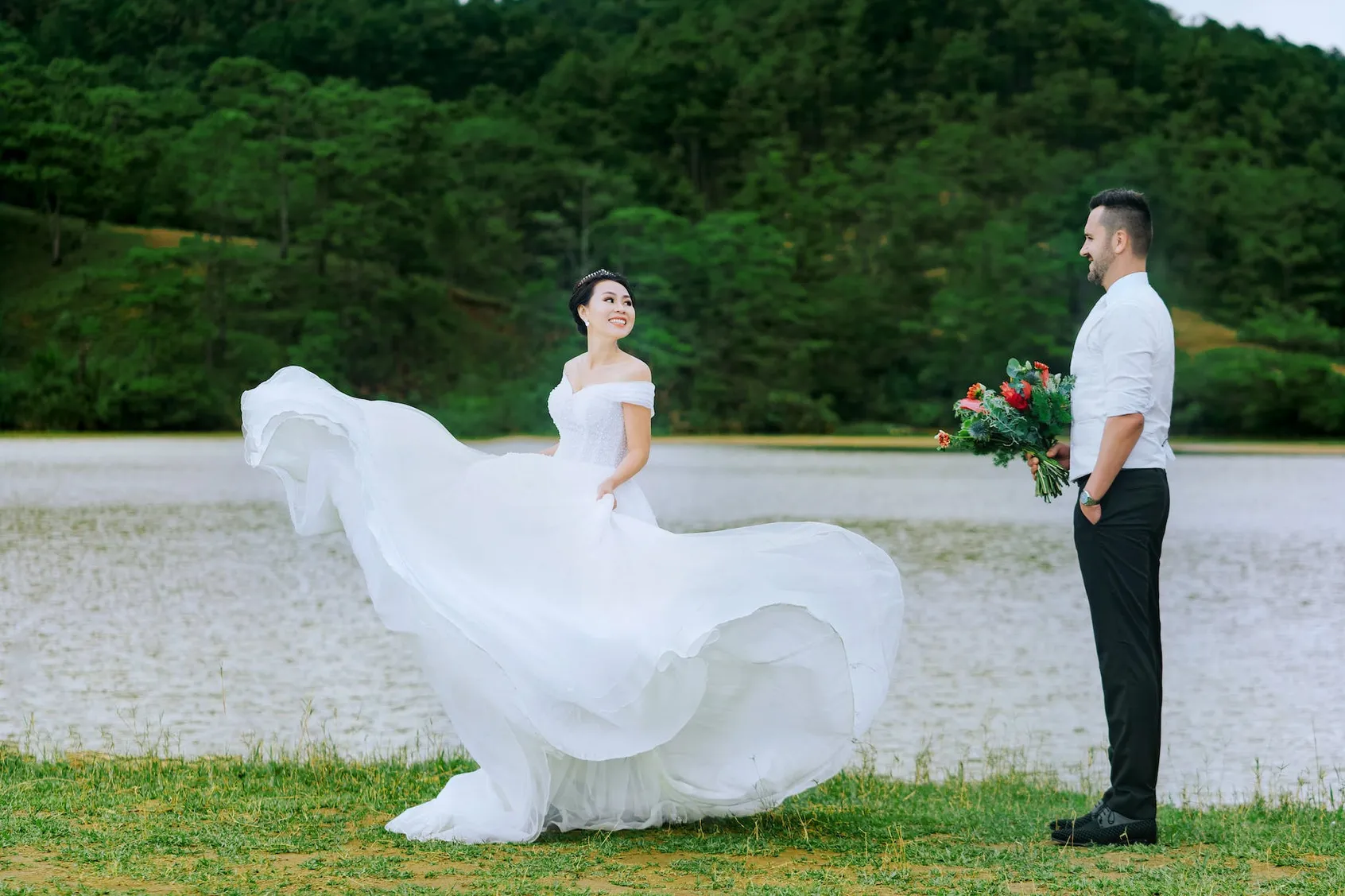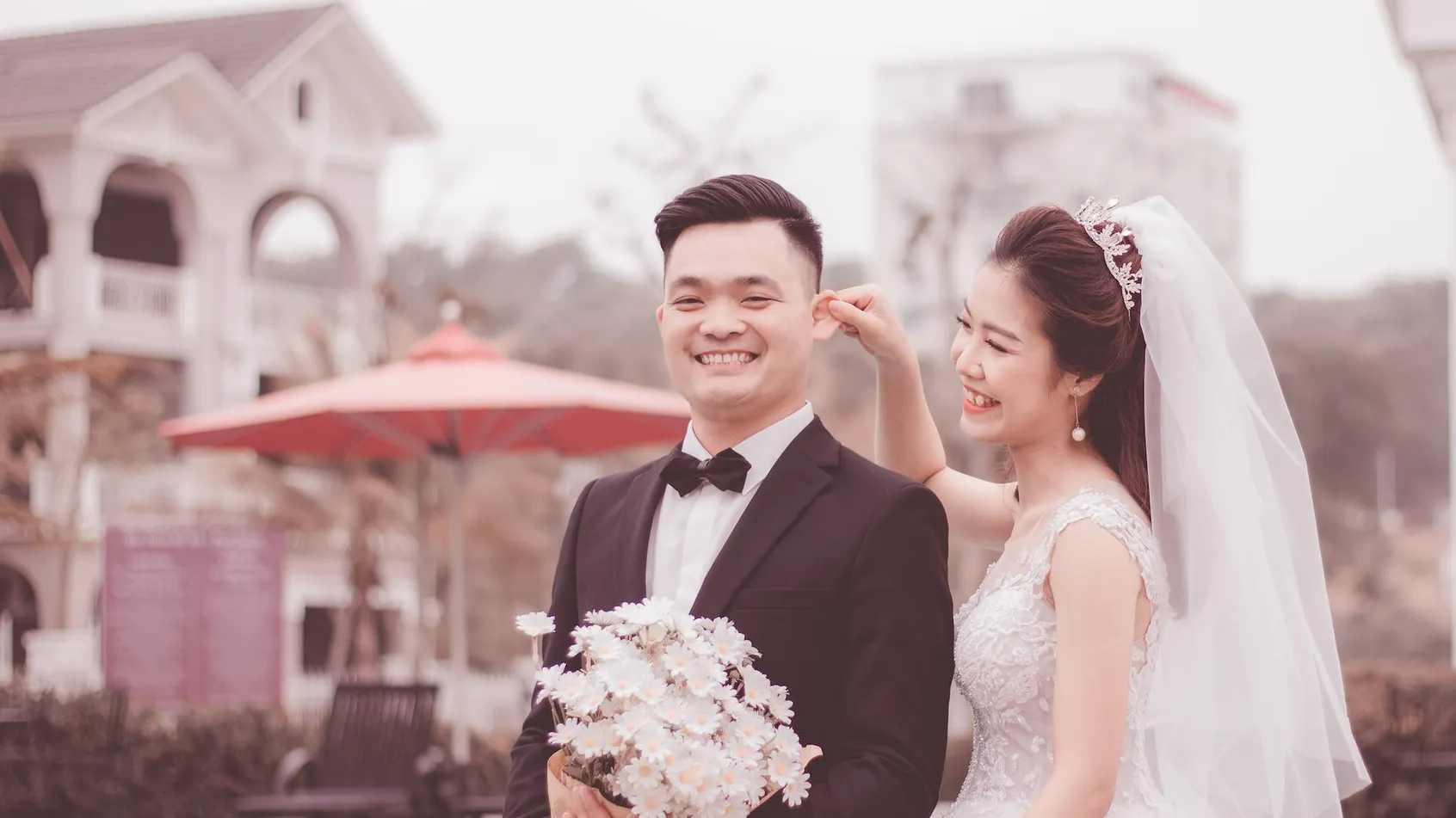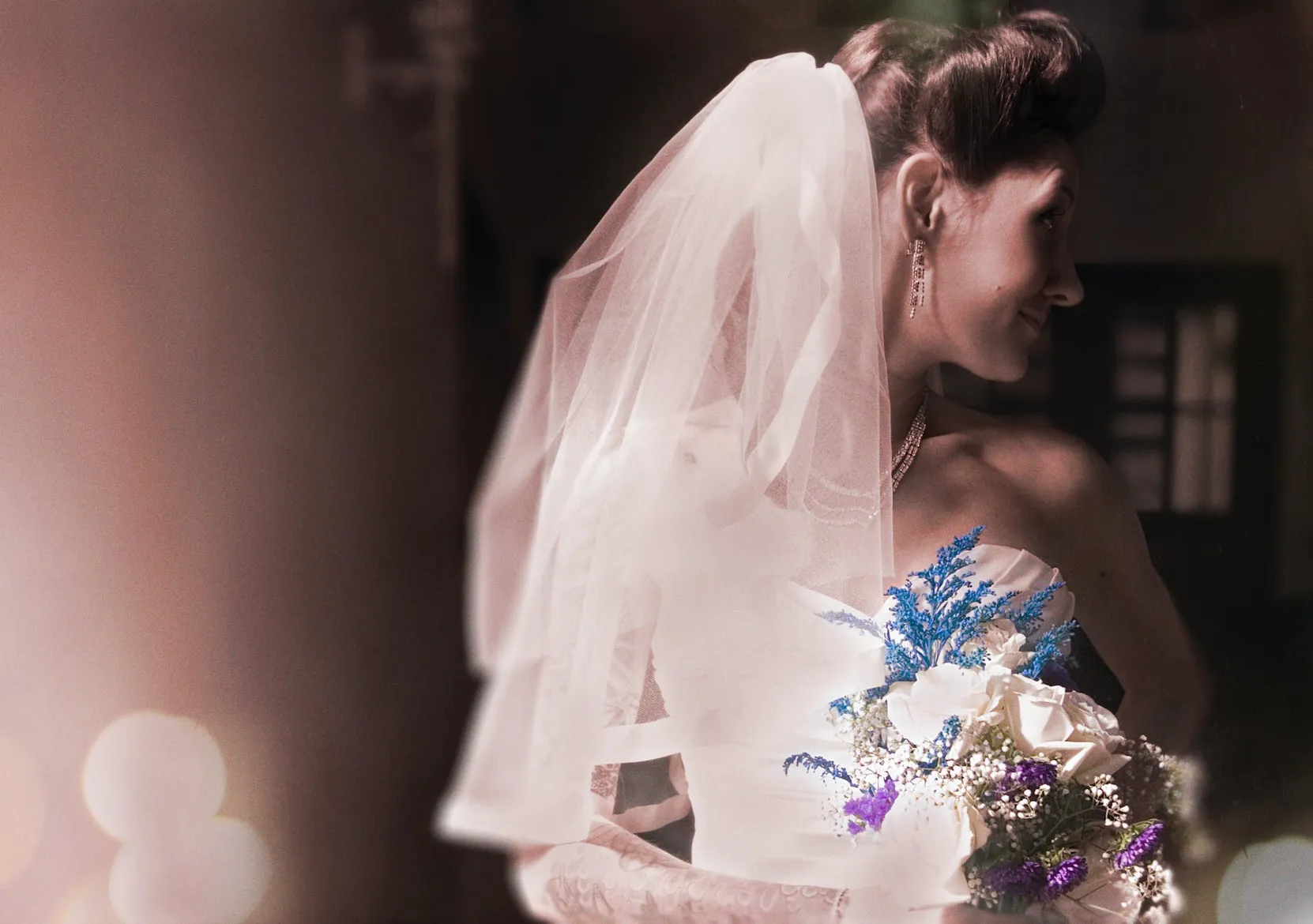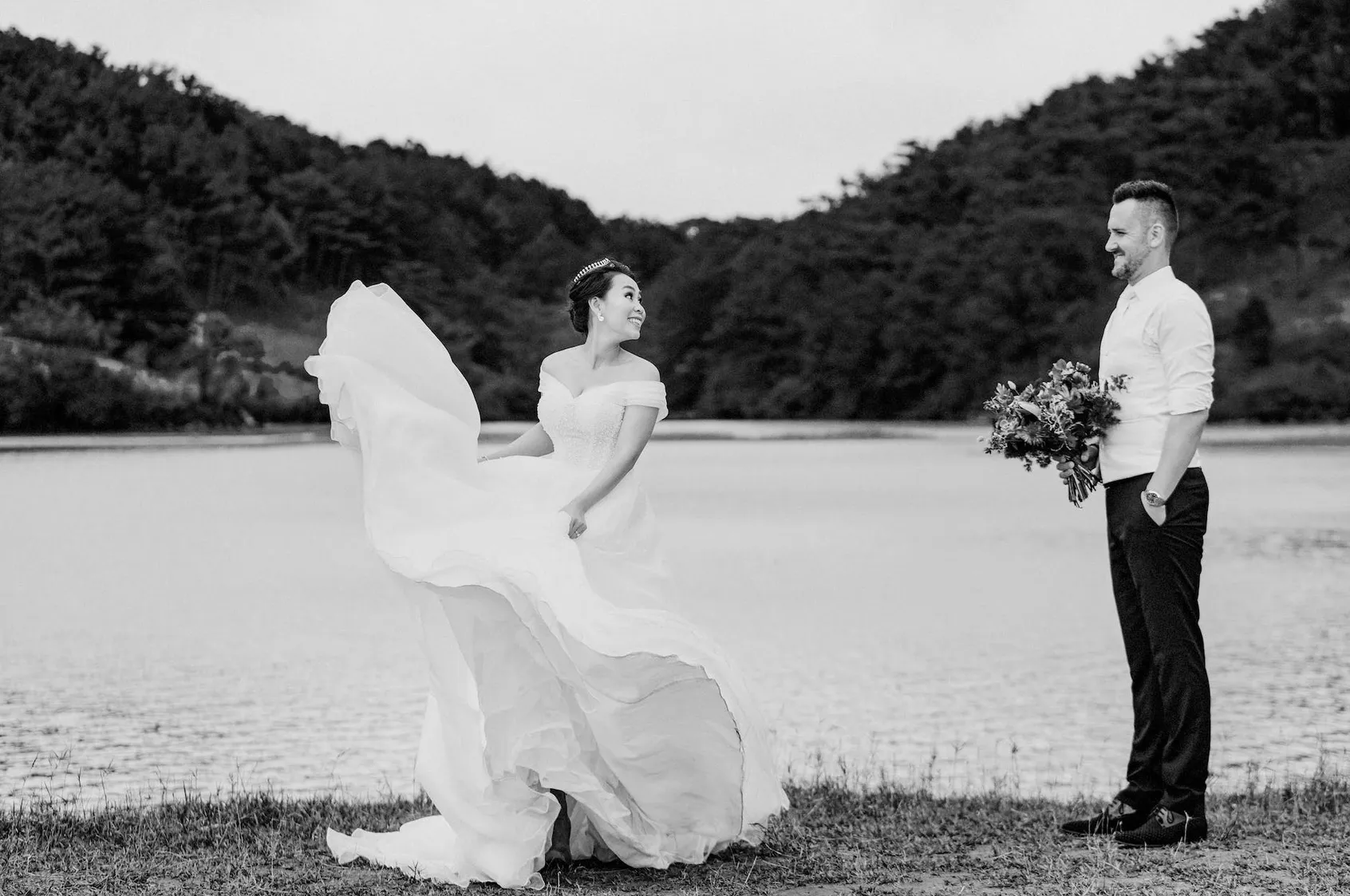Marriage is a special event that begins a life-long commitment between two individuals. As such, it is important to understand the legal requirements for getting married and the traditions that often accompany the ceremony. When getting married, one of the most common questions is, “Are vows required for marriage?”
The answer is not as simple as a yes or no, as it depends on the couple’s preferences, the type of wedding they plan to have, and the laws of the state they are getting married. This article will provide an overview of the importance of wedding vows and explain the legal requirements for getting married.
Are Vows Required For Marriage?
Marriage vows are a special part of a marriage ceremony and are often seen as a symbol of commitment between two people. Not all couples include marriage vows in their wedding ceremony despite their importance. Whether or not vows are required for marriage depends on the couple and the laws of the state they are getting married in.
In some states, couples must write and recite their vows during the ceremony. In other states, all that is required is a declaration of intent, which can be done in various ways. For example, some couples may read a set of written vows they have written together, while others may choose to simply say the words “I do” in front of a witness.
In some states, couples can choose to have a legal or civil ceremony, which does not require vows. Instead, the couple simply needs to sign a marriage license and have it witnessed by two people. This is often a less formal way to get married and is much quicker than a traditional ceremony.
No matter what type of ceremony a couple chooses, a few common elements are usually included in marriage vows. Generally, couples pledge to be faithful and to love each other for better or worse, in sickness and health, in good times and bad. They may also promise to support each other and share life’s joys and sorrows.
Ultimately, marriage vows are not required for marriage in all states, but they can be a meaningful part of a wedding ceremony. Couples who choose to include them should make sure they are well-written and personalized to reflect the couple’s unique relationship. Vows can provide a special moment during the ceremony where couples can express their love and commitment to each other.

What Are Vows?
Vows are an integral part of a marriage ceremony and can be seen as a public declaration of the couple’s commitment to one another. Vows are a way for a couple to express their love for each other and their commitment to remain together for the rest of their lives. In most cultures, the exchange of vows is seen as a very important part of a wedding ceremony, as it marks the official beginning of the marriage.
In some countries, such as the United States, vows must be exchanged to obtain a legal marriage. The couple usually writes the vows, which can be as simple or elaborate as they wish. In the US, most couples choose to include the words “to love and to cherish,” as well as pledging to be faithful and to stay together until death do them part.
In some other countries, however, vows are not legally required for marriage. For example, in England and Wales, a couple is not legally required to exchange vows to obtain a marriage certificate. However, couples often exchange vows for their wedding ceremony to declare their commitment and love for one another publicly.
The vows exchanged during a wedding ceremony can be very meaningful and personal. They are a way for the couple to express their love for each other and celebrate their commitment. Many couples find that exchanging their vows is an emotional and powerful part of their wedding day.
Who Wrote The Marriage Vows?
Marriage vows are a custom that dates back to the Middle Ages and are a set of promises that couples make to each other during the marriage ceremony. The vows promise to love, honor, obey their partner, and be faithful to them for the rest of their lives. While the specifics of the vows vary from culture to culture, most couples recite traditional vows that have been passed down from generation to generation.
The origin of the marriage vows is not completely known, but it is believed that they developed out of religious ceremonies. In the early days of Christianity, couples would recite the vows in a church ceremony before witnesses and God. Over time, the traditional vows were adopted by many other religions and cultures, and they have since become a common part of most wedding ceremonies.
Who Should Write The Vows?
The decision of who should write the wedding vows is up to the couple getting married. Traditionally, the vows are written by the bride and groom, but some couples may choose to write them together or even ask a friend or family member to help with the writing process.
The decision of who should write the wedding vows ultimately depends on the couple’s preferences and beliefs. Some couples write their vows together, while others write them separately as a surprise on the wedding day.
Remember that the vows should be personal and meaningful to the couple, so whoever writes them should deeply understand their feelings and relationship. Some couples may also choose to use traditional vows. The couple must discuss their preferences and decide what feels right for them.
Ultimately, the most important thing is that the vows come from the heart and reflect the love and commitment between the couple and their unique relationship.

Do All Couples Need To Exchange Vows?
Do all couples need to exchange vows when they get married? This is a question many couples have when they are considering getting married, and the answer depends on the type of marriage ceremony they are having.
Generally speaking, a formal marriage ceremony will include both the bride and groom exchanging vows, which are the promises they make to each other regarding their marriage. The couple typically writes these vows, ranging from traditional vows to more modern and unique declarations of love.
In some countries, couples may be legally married without exchanging vows. This is often done in a civil ceremony, without any religious aspects. In this case, a judge or magistrate usually officiates the marriage, and the couple will simply sign the marriage license to make it official.
A religious marriage ceremony may require that the couple exchange vows, as it is an important part of a spiritual wedding. This can be a very meaningful and special moment for the couple, as it is a chance for them to declare their love for each other and promise their commitment.
There are other options for couples who do not wish to exchange vows, such as a simple wedding ceremony. This type of ceremony typically includes the couple exchanging rings and briefly exchanging words, such as “I do.” This is often enough to make the marriage legally binding.
What Is The Legal Significance Of the Exchange Of Vows?
The exchange of vows during a marriage ceremony is an integral part of the process and is legally binding. The vows exchange is how the couple proclaims their commitment to one another and promises to remain faithful and devoted to each other.
The vows are usually accompanied by exchanging rings or other symbols of the union. In some religions, the exchange of vows is considered a sacred ritual that binds the couple into a spiritual union. In addition to the spiritual significance, the exchange of vows has legal significance.
In most countries, the exchange of vows is legally binding and is a formal declaration of the couple’s commitment to each other. The promises made in the exchange of vows are legally binding, and the couple will be held accountable for the promises made in the vows. The vows also notify the court of the couple’s intent to marry and are often required to obtain a marriage license.
The exchange of vows is also a formal declaration of the couple’s decision to enter into a legal contract. The vows and the exchange of rings express the couple’s commitment. The promises made in the vows are also legally binding, and the couple will be held accountable for the promises made in the vows. In some cases, the exchange of vows may also be used to prove the couple’s intent to enter a valid marriage.
What Legally Has To Be Said At A Wedding?
Are vows required for marriage? The answer is yes; certain words must be said for a wedding to be legally recognized. In the United States, couples wishing to be married must say certain words during their ceremony for the wedding to be legally binding. Those words depend on which state the couple is getting married in.
Generally, the couple must declare they take each other as husband and wife. In some states, the couple must also state that they accept each other as spouses or declare they will live together as husband and wife. The couple must also declare that they are entering into the marriage of their own free will; in some states, one of the partners must also declare that they will love, honor, and cherish the other.
In addition to the legal requirements, couples may recite traditional vows, exchange personal vows, or exchange rings. Traditional vows are typically traditional vows that couples have used for centuries. These usually include promises to love and honor the other partner in sickness and health, for better or worse, and to forsake all others in favor of the marriage partner.
Personal vows are those that the couple creates themselves and can be more specific to their relationship. Exchanging rings is an optional part of the ceremony and symbolizes the couple’s commitment.

What Should Be Included In The Vows?
Regarding marriage, it is essential to remember that vows are not required. While traditionally, couples will exchange vows in a wedding ceremony, this is not a marriage requirement, and couples are free to choose whether or not they want to do so. However, if you decide to include vows in your nuptials, there are several things to remember.
First and foremost, your vows should testify to your commitment to one another. Your vows should express your love, devotion, and commitment to each other and your intent to remain together for the rest of your lives.
You should also consider the promises you make to each other and the expectations of your marriage. A good vow should include promises to stay faithful, care for one another in sickness and health, and respect and honor each other.
When writing your vows, keeping them personal and unique is important. Your vows should reflect your relationship and the unique bond that you and your partner share. You may want to include inside jokes, favorite memories, or special nicknames you use for each other in your vows.
Finally, it’s important to keep it short and sweet. A good vow should not be too long or overly detailed. It should be a concise, heartfelt statement expressing your commitment and love for your partner.
Tips For Writing Effective Vows
Writing effective vows can help make your special day more meaningful and memorable. When creating meaningful vows for your upcoming marriage, it’s important to remember that they are a formal promise between two individuals. Not only that, but they also help create a lasting bond that will be remembered for years. Here are some tips to help you write effective vows:
- First, think about the type of vows you would like to say. Do you want to include a few traditional vows or something more modern and personal? It’s important to consider how you want your vows to reflect your relationship.
- Second, start by brainstorming. Write down any ideas that come to mind, no matter how small. This will help you understand the vows you want to share with your partner.
- Third, write your vows down. It’s important to get your ideas down on paper so you can go back and edit them later. This will also help you to remember what you want to say.
- Fourth, make sure that your vows are meaningful and heartfelt. Vows are not just about what you promise to each other; they should also express your love and commitment.
- Finally, practice your vows. This will help you to feel more confident and comfortable when it comes time to say them.
How To Personalize Your Vows?
When it comes to marriage, the exchange of vows is often considered an essential part of the ceremony. For couples who do decide to exchange vows during their wedding ceremony, there are various ways to personalize them.
Writing your vows can be a great way to express your love and commitment to your partner, allowing you to create something unique and special. For example, couples can write their vows or use traditional vows. Additionally, couples can also choose to use traditional vows, which can be found in many wedding books or online.
When exchanging the vows, couples may choose to read them aloud or recite them together. Couples can also have someone else read their vows, such as a family member or a close friend. This can be a great way to add a special touch to the exchange of vows, as it allows someone close to the couple to be a part of the ceremony.
Can Vows Be Spoken In Other Languages?
When it comes to weddings, one of the most important moments is when the couple exchanges a vow. Whether vows are required for marriage is common, and the answer depends on the type of wedding ceremony being performed. In the United States, most ceremonies require a vow exchange, although some states do not.
Vows can be spoken in any language, but ensuring both parties understand what is being said is important. If the couple is from different cultures, choosing a language that both people understand is best. Some ceremonies do not require any vows to be spoken. Sometimes, couples can exchange rings in front of witnesses instead.
Many couples choose to write their vows, while others may choose to use traditional vows. It’s important to make the words meaningful and heartfelt when speaking vows. This is a time when couples can express their commitment to one another, and the words they choose can help to make the moment special.
Couples can also opt to have a celebrant or officiant lead the ceremony. This person can help guide the couple through the vows and ensure that they are spoken clearly and sincerely. The celebrant can also guide how to phrase the vows or offer suggestions to make them even more meaningful.
How To Practice Your Vows Before The Ceremony
Making sure your vows are perfect for your big day is important, and practicing them beforehand can help ensure you say them just how you want. Before you start practicing, deciding what type of vows you want to say is essential.
Traditional vows are typically more formal and include phrases like “in sickness and health” and “for better or worse.” Meanwhile, more modern vows allow couples to express their unique personalities with unique promises and declarations. Once you know what type of vows you will say, it’s time to start practicing.
- One of the best ways to practice your vow is to record yourself saying them. This will help you get comfortable with the words and become familiar with the rhythm and tone of your voice. After you’ve recorded yourself, take the time to listen back and make any necessary changes. You can also ask a friend or family member to provide feedback on your vows and help you find the right words to express what you want to say.
- Another way to practice your vow is to write them down and read them out loud. This is a great way to get comfortable with the words and understand how they will sound when you say them in front of your partner. You can also practice in front of a mirror to ensure you speak clearly and confidently. If you’re feeling nervous, you can practice with a friend or family member in the room.
Finally, if you’re feeling overwhelmed, it’s important to remember that you don’t have to memorize your vows. It’s perfectly acceptable to have your vows written down on a piece of paper or even printed on a card so that you can refer to them during the ceremony. Whether you want to memorize your vows or not, taking the time to practice them ahead of time will make sure that you’re ready for your big day.
Conclusion
In conclusion, while there is no legal requirement to exchange vows to be married, it is a traditional part of the ceremony. It has a long history of being a part of the joining of two people in marriage. Whether you write your vows or use traditional ones, it is a meaningful way to express your love and commitment to your partner on your special day.
Frequently Asked Questions:
Do you have to say vows when you get married?
Yes, in most traditional weddings, the bride and groom exchange vows during the ceremony.
What can I do instead of wedding vows?
Rather than traditional wedding vows, couples can write personalized vows that express their unique love and commitment to one another. Alternatively, couples can also choose to recite other meaningful readings, poems, or quotes that capture the essence of their relationship.
Is it okay not to write vows?
Yes, it is okay not to write vows. Some couples recite traditional vows during their ceremony, while others prefer to say more personalized words. Ultimately, it is up to the couple to decide whether they want to write their vows.
Why are vows necessary?
Vows are necessary because they express commitment and dedication to a relationship, whether between a couple, friends, family members, or even a spiritual relationship. Vows are a way of publicly declaring a promise to uphold the relationship and honor commitments. They also provide a way to celebrate the bond between two people and honor their special relationship.
How many witnesses are required for marriage?
The number of witnesses required for marriage varies depending on the location. Generally, two witnesses are required for a legal marriage ceremony.
Are there any restrictions on who can officiate a marriage ceremony?
Yes, there are restrictions on who can officiate a marriage ceremony. These restrictions vary by state but only ordained or licensed clergy, justices of the peace, judges, and certain public officials are generally authorized to perform weddings. In some states, friends and family members may be able to officiate a wedding ceremony after obtaining a one-time officiant license.
